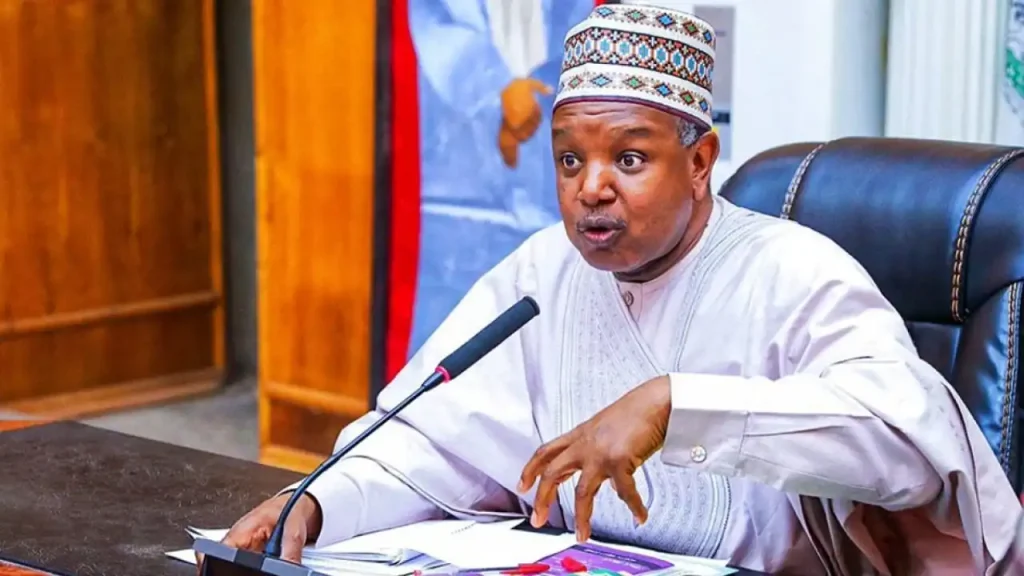Abubakar Atiku Bagudu, Minister of Budget and Economic Planning, on May 15, 2025, stated that investors from Brazil, Belarus, and Saudi Arabia are increasingly entering Nigeria’s agricultural space, reflecting growing confidence in the country’s economic reforms under President Bola Ahmed Tinubu.
This report provides a detailed analysis, verifying the minister’s claims and exploring the broader implications, based on recent developments and available data.
Background
This was released through a statement signed by Bayo Onanuga, Special Adviser to the President on Information and Strategy, underscores the administration’s efforts to revitalize Nigeria’s agricultural sector as part of its economic diversification strategy.
The focus on attracting foreign investment aligns with initiatives like the Special Agro-Industrial Processing Zones (SAPZ) and the Green Imperative Project, aimed at enhancing food security, increasing productivity, and creating jobs.
Brazil’s Agricultural Investment
Research confirms significant investment from Brazil, particularly through the Green Imperative Project (GIP).
On March 18, 2025, Nigeria and Brazil signed the commercial phase of the GIP, valued at $1.1 billion, with a total investment package of $8 billion.
This project, initiated in 2018, prioritizes sustainable, low-carbon agriculture and targets small-scale farmers, linking them to agricultural value chains.
Vice President Kashim Shettima described it as a milestone in Nigeria’s journey toward food security and economic diversification
The involvement of Brazil, a BRICS partner country since January 2025, further facilitates economic cooperation, with Nigeria’s interests aligning with Brazil’s focus on Global South collaboration
Belarus’s Contribution to Mechanized Farming
The evidence leans toward Belarus playing a significant role in modernizing Nigeria’s agriculture through the supply of farming equipment.
On February 28, 2025, Nigeria received its first consignment of Belarusian agricultural machinery, including 2,000 tractors and over 9,000 pieces of farming equipment, under a supply deal signed in September 2024
Further, on January 14, 2025, the Minister of Agriculture and Food Security disclosed that the government had started taking delivery of these tractors, reaffirming commitment to crashing food prices through mechanized farming
Belarus, known for its agricultural machinery production, is supporting Nigeria’s efforts to enhance efficiency, particularly for smallholder farmers, addressing challenges like low technology and high production costs.
Saudi Arabia’s Interest in Agricultural Investment
It appears that Saudi Arabian investors are showing interest in Nigeria’s agricultural sector, though specific details are less comprehensive compared to Brazil and Belarus.
On November 14, 2023, Governor Mohammed Bago of Niger State confirmed that Saudi investors expressed readiness to invest in agriculture during a Saudi Arabia-Nigeria Roundtable Meeting in Mecca, led by President Tinubu
Additionally, during a bilateral meeting on November 10, 2023, Nigeria and Saudi Arabia agreed to establish a business council, with Nigeria anticipating “immediate” multi-billion-dollar investment flows, including in agriculture
While specific agricultural investment figures are not detailed, Saudi Arabia’s efforts to attract foreign investors in agriculture, as part of Vision 2030, could include partnerships with Nigerian states
Context and Significance
These investments are part of Nigeria’s broader strategy to address agricultural challenges like low technology, high production costs, and poor access to markets, as noted by the Food and Agriculture Organization
The involvement of Brazil, Belarus, and Saudi Arabia aligns with global trends toward agricultural modernization and food security, supporting Nigeria’s goal to reduce reliance on imports and enhance export potential.
However, challenges like land tenure systems and climate change may require additional policy support to maximize these investments’ impact.
Conclusion
These investments are expected to play a pivotal role in modernizing the sector, increasing productivity, and contributing to Nigeria’s economic growth, aligning with the administration’s “Renewed Hope Agenda”.























